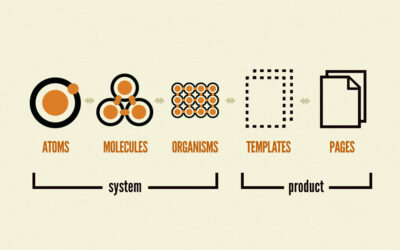The Challenge
Traditional manufacturing data management can be a challenging endeavor for technical decision-makers. With the increasing volume and complexity of data generated by machines, sensors, and other systems, it can be difficult to collect, store, and analyze this data using on-premise solutions.
Additionally, scaling these solutions to accommodate growing data volumes can be costly and time-consuming. Security risks pose a significant challenge, as sensitive data must be protected from unauthorized access or breaches. Finally, integrating data from multiple sources can be complex and time-consuming, further complicating traditional manufacturing data management. These challenges highlight the need for a centralized and scalable solution to manage and analyze manufacturing data effectively.
How can manufacturers stay competitive with the data cloud?
To stay competitive, manufacturers need to be able to access and analyze data from multiple sources quickly and efficiently. This is where the Manufacturing Data Cloud comes in. By providing a centralized platform for data storage, analysis, and collaboration, the Manufacturing Data Cloud empowers manufacturers to make data-driven decisions and improve their operations.
A manufacturing data cloud is a cloud-based platform that collects, stores, and analyzes manufacturing data from various sources in real time. With data in one place, it becomes easier to improve manufacturing operations, optimize processes, and enhance product quality.
The data cloud offers numerous advantages, including scalability, cost-effectiveness, real-time analytics, improved data security, and ease of integration. The business advantages include:
- Increased agility: A data cloud can help businesses respond quickly to changing market conditions and customer demands by providing real-time access to data and analytics.
- Enhanced collaboration: By centralizing data in the cloud, businesses can improve collaboration between different departments and teams, leading to better decision-making and faster problem-solving.
- Improved efficiency: A manufacturing data cloud can streamline processes and reduce manual work, increasing efficiency and productivity.
- Better customer service: Real-time analytics and access to customer data can help businesses provide better customer service and personalized experiences.
- Competitive advantage: By leveraging data and analytics, businesses can gain a competitive advantage in the market and stay ahead of their competitors.
What are the technical advantages of a data cloud?
By utilizing a manufacturing data cloud, manufacturers can monitor their operations, identify inefficiencies, implement predictive maintenance programs, promote team collaboration, and quickly scale to accommodate changing business needs.
- Centralized Data Management: A manufacturing data cloud provides a centralized platform for storing, managing, and analyzing data from various sources, including machines, sensors, and other systems. This gives manufacturers a comprehensive view of their operations, which can help them make informed decisions and optimize their processes.
- Real-time Monitoring: Manufacturers can monitor their operations in real time with a manufacturing data cloud. This enables them to detect issues early on and take corrective action before they escalate into more significant problems that could impact production. In addition, it is now possible to automate repetitive tasks through robotic process automation (RPA) and artificial intelligence.
- Improved Efficiency: By analyzing data from various sources, manufacturers can identify inefficiencies in their processes and make changes to improve their efficiency. This can lead to cost savings and increased productivity.
- Predictive Maintenance: A manufacturing data cloud can help manufacturers implement predictive maintenance programs. By analyzing data from machines and other systems, manufacturers can predict when maintenance is needed, reducing downtime and increasing the lifespan of the equipment.
- Enhanced Collaboration: A manufacturing data cloud promotes collaboration between different teams within an organization. By sharing data and insights, teams can work together to identify and solve problems, leading to better outcomes.
- Scalability: A manufacturing data cloud can easily scale to accommodate changing business needs. As a manufacturer grows and expands, the data cloud can grow with it, providing the necessary resources to support increasing data volumes and processing requirements.
- Data Security: A manufacturing data cloud provides robust security features to protect sensitive data. This includes encryption, access controls, and monitoring to ensure data is safe from unauthorized access or breaches.
- Cost-effectiveness: The manufacturing data cloud offers a cost-effective solution for managing data. It ends the need for expensive hardware and software installations and dedicated IT staff to manage the system. This means that manufacturers can save money while still having access to a robust data management system.
What are the Key Features of a Manufacturing Data Cloud?
The key features of a manufacturing data cloud include data collection and storage, real-time analytics, machine learning and AI (Artificial Intelligence) capabilities, data visualization and reporting, and integration with other systems.
- Data collection and storage involves gathering data from various sources in the manufacturing process and storing it in a centralized location for easy access and analysis. This data can include information on production processes, equipment performance, and quality control measures.
- Real-time analytics: The manufacturing data cloud offers real-time analytics capabilities that allow manufacturers to monitor their operations in real-time. This means that manufacturers can quickly identify issues and take corrective action before they become major problems. Real-time analytics also enable manufacturers to optimize their operations for improved efficiency and productivity.
- Ease of integration: The manufacturing data cloud is designed to be easily integrated with other systems and applications. This means that manufacturers can easily connect their data management system to other systems such as ERP (Enterprise Resource Planning), MES, and CRM (Customer Relationship Management) systems. This integration enables manufacturers to streamline their operations and improve efficiency – for example – converting Bill of Materials into a single source datamart.
- Improved data security: The manufacturing data cloud provides improved data security compared to traditional data management systems. Cloud platforms typically have multiple layers of security, including firewalls, encryption, and access controls. This means that manufacturers can have peace of mind knowing that their data is safe and secure.
- Real-time analytics allows for quick and accurate data analysis as it is collected, providing insights into production processes and identifying potential areas for improvement. This can help manufacturers make informed decisions and optimize their operations.
- Manufacturing Machine learning and AI capabilities enable the system to learn from the data collected and provide predictive insights, such as identifying potential equipment failures before they occur. This can help manufacturers reduce downtime and improve overall efficiency.
- Data visualization and reporting allow manufacturers to easily understand and communicate their data, providing insights into production performance and identifying trends over time. This can help manufacturers make informed decisions and optimize their operations.
Choosing the Right Manufacturing Data Cloud Integration Vendor
Choose the right vendor! Choose a vendor that understands your industry and has experience in manufacturing data cloud migration. Look for a vendor with comprehensive support and a proven record of accomplishment of success. The right vendor can also help you…
- Define your goals and objectives: Before migrating to a manufacturing data cloud, it’s important to define your goals and objectives. This will help you determine what data you need to migrate and how it should be organized.
- Identify key stakeholders: Involve key stakeholders in the migration process. This includes IT, operations, and management teams. Ensure everyone is on the same page and understands the benefits of migrating to a data cloud.
- Develop a migration plan: Develop a detailed migration plan outlining the steps in moving your data to the cloud. This should include timelines, milestones, and contingency plans.
- Test and validate: Before migrating all your data to the cloud, validate the migration process. This will help you identify any potential issues and ensure a smooth transition.
- Train employees: Ensure your employees are trained in how to use the new manufacturing data cloud. This includes training in data entry, data retrieval, and data analysis.
- Monitor and optimize: Once you’ve migrated to the cloud, monitor and optimize your data usage. This includes identifying data trends and patterns that can help you improve your manufacturing processes.
In addition, when selecting a manufacturing data cloud integration vendor, there are several criteria to consider, including:
- Experience and expertise: Look for a vendor with experience in the manufacturing industry and a deep understanding of data management and analytics.
- Scalability: Ensure the vendor’s solution can scale to accommodate growing data volumes and processing requirements.
- Security: Look for a vendor with robust security measures to protect sensitive data.
- Integration capabilities: Ensure the vendor has experience integrating other systems and applications, such as ERP, MES, and CRM systems.
- Support and training: Ensure that the vendor offers comprehensive support and training to help you get the most out of your manufacturing data cloud.
In conclusion, the Manufacturing Data Cloud offers numerous benefits for small to midmarket manufacturing companies. By adopting this cloud-based solution, manufacturers can store, manage, and analyze their data in real-time, eliminating the need for complex and outdated systems. This streamlines processes, increases productivity, and provides immediate benefits such as accessible data and easy-to-use AI for optimizing manufacturing production and factory-floor operations at scale.
The Manufacturing Data Cloud also enables manufacturers to fuel team productivity, transform manufacturing engineers into data scientists, drive data transformation, and deliver real-time visibility across manufacturing operations. By deploying AI in production, manufacturers can optimize costs and production, running faster and smoother.
Furthermore, the Manufacturing Data Cloud offers various use cases, including anomaly detection, predictive maintenance, and quality control. By tapping into machine sensor data, manufacturers can detect trends and anomalies as they unfold, understand machine health using historical data, and combine inspection data with sensor data to detect and address quality issues.
By bringing all manufacturing data together in one place, the Manufacturing Data Cloud provides a comprehensive view of operations. This allows manufacturers to make better decisions, optimize processes, and streamline efficiency. ˚
If you haven’t already, read our other article on the Manufacturer’s Guide to Artificial Intelligence.
If you need help with the Manufacturer’s Data Cloud, contact ThoughtFocus at betterfuturefaster@thoughtfocus.com.
If you need help with technical marketing content, talk to Ben Bradley.
Did you know we also specialize in pharmaceutical content?




